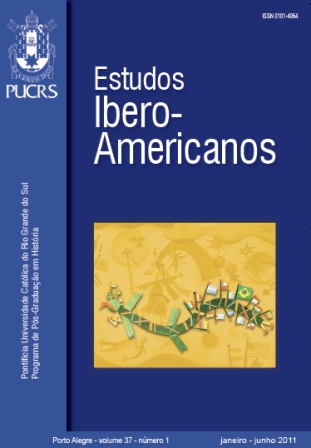Youth and agents of history
DOI:
https://doi.org/10.15448/1980-864X.2011.1.7488Keywords:
Historical conscience, Historical culture, Intercultural data gatheringAbstract
This paper discusses the conception of Brazilian, Argentinian and Uruguayan youth regarding agents of history, based on their study of History in school and outside. Data were obtained using the international research "Brazilian and Argentinian Youth and History", based on students of 15-years of age and their teachers, using predominantly the Likert scale. Theory-wise, the research follows the concepts of historical conscience and historical culture, as formulated by German History Didactics, as well as the concept of political culture. In summary, results have shown that, within the universe researched, the so-called "important people" typical of History education in schools are recognized as "founding fathers" of the nations, but not as agents that represented alternatives in the development of national history, and the same happens with females. Science, technology and inventions are seen as more important factors of change than "important people", and these, in turn, are surpassed by the importance given to collective movements.Downloads
Downloads
Published
How to Cite
Issue
Section
License
Copyright
The submission of originals to Estudos Ibero-Americanos implies the transfer by the authors of the right for publication. Authors retain copyright and grant the journal right of first publication. If the authors wish to include the same data into another publication, they must cite Estudos Ibero-Americanos as the site of original publication.
Creative Commons License
Except where otherwise specified, material published in this journal is licensed under a Creative Commons Attribution 4.0 International license, which allows unrestricted use, distribution and reproduction in any medium, provided the original publication is correctly cited.






